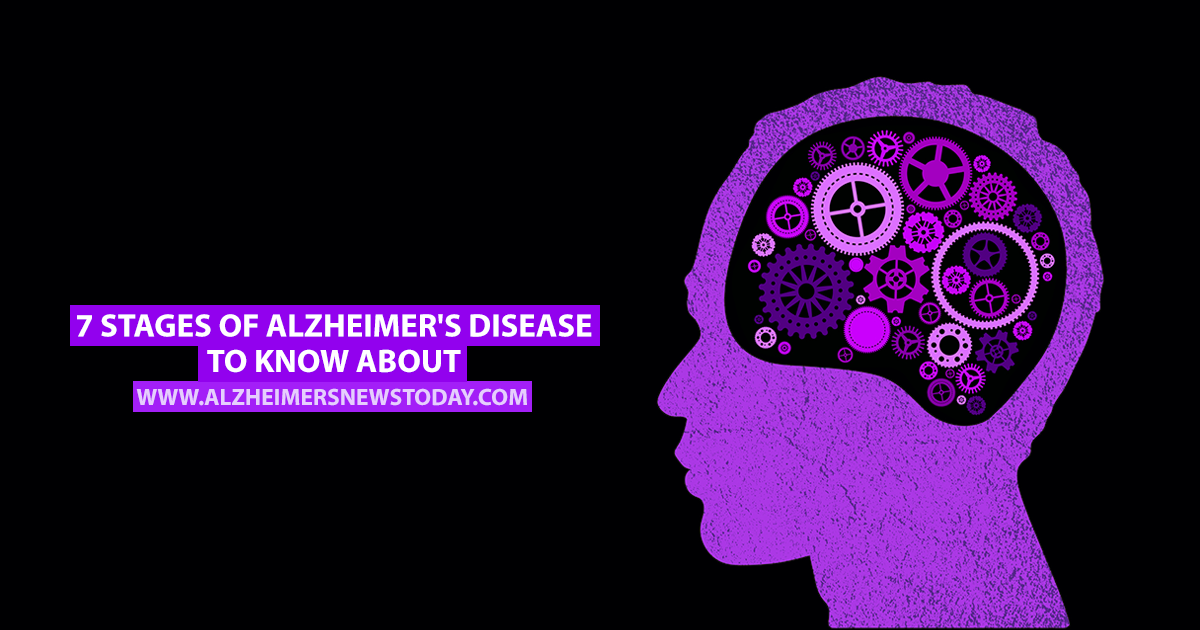7 Stages of Alzheimer’s Disease to Know About
Written by |

We’re all familiar with Alzheimer’s disease — it’s the disease that robs us of our loved ones and robs the ones we love of their experiences. But did you know that there are seven stages of Alzheimer’s disease? By knowing the stages and the signs, we can help our loved ones get the help they need.
According to alzheimers.net, the first stage of Alzheimer’s disease has no signs at all. The person affected has no symptoms — the disease is undetectable.
The second stage of the disease is incredibly mild and can be chalked up to the normal forgetfulness of aging. Patients may forget where they left their keys or to turn off the curling iron. They can still do quite well on memory tests, making Alzheimer’s hard to spot for doctors and family alike.
MORE: U.K. launches program to raise awareness of invisible illnesses
It’s during the third stage that doctors and loved ones begin to spot the disease. This is when patients begin forgetting words they want to use in conversation, have trouble planning events, and remembering names. It’s also the stage where the patient’s scores on memory tests begin to decline. People in stage three often lose personal items.
In stage four, patients exhibit clear-cut signs of the disease, including problems with short-term memory. They may find it difficult to remember what they ate for breakfast or details about their lives. Some patients begin to have problems managing their finances.
MORE: How light therapy can help Alzheimer’s patients
When a loved one progresses to stage five, they’ll need help with their daily activities, but they typically can still dress, bathe, and use the restroom on their own. They usually still remember the names and faces of their loved ones and can still recall details of their lives, especially details from their childhood. Patients in stage five often experience significant confusion which makes it difficult to dress appropriately or remember simple details about themselves such as their birthday or phone number.
If you know someone with Alzheimer’s disease that you think may be in stage six, you may want to consider getting them some full-time care, as patients in this stage usually need constant supervision. Patients often experience significant confusion; they need help recalling details about their lives and themselves. This is one of the saddest stages of the disease as it’s when patients begin to lose the ability to recognize friends and family. They may also experience a significant personality change or have significant changes in behavior. Patients in this stage often experience a loss of bladder or bowel control. It is also in this stage where many patients wander, forgetting where they are going and getting lost.
MORE: Tracking early-onset Alzheimer’s patients could be the key to a cure
The seventh stage of Alzheimer’s is death. Patients in this stage lose the ability to interact with their environment as well as the ability to communicate, even though they may still be able to utter simple words and phrases. They have no insight on their condition or future. They need help with all of their daily living activities and many lose the ability to chew and swallow rendering them back to a very childlike form.
It is very important to remember that every Alzheimer’s patient experiences the disease differently. Here are some resources where you can find support for you or someone you know who’s been affected by the disease.
MORE: Six known risk factors for Alzheimer’s disease
Alzheimer’s News Today is strictly a news and information website about the disease. It does not provide medical advice, diagnosis or treatment. This content is not intended to be a substitute for professional medical advice, diagnosis, or treatment. Always seek the advice of your physician or another qualified health provider with any questions you may have regarding a medical condition. Never disregard professional medical advice or delay in seeking it because of something you have read on this website.





